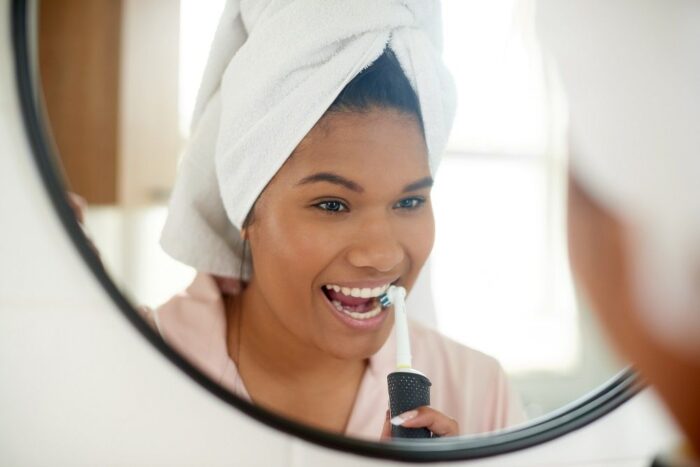Oral hygiene is a crucial part of maintaining good overall health. One of the main tools for good oral hygiene is a toothbrush. Toothbrushes are an essential tool for keeping our teeth and gums clean. However, many people overlook the importance of proper toothbrush maintenance.
Unfortunately, they also fail to replace their toothbrushes often. As a result, the health of your toothbrush can actually affect your oral health. When patients visit our dental office for preventive dental care, we help them determine their toothbrushes’ health and advise them on how to keep them clean and when to change them.

When to Change Your Toothbrush
Most dental professionals recommend changing your toothbrush every three to four months or when the bristles start to fray. Frayed bristles can be less effective in removing plaque and food particles from your teeth and gums. In addition, they can also harbor bacteria that can cause infections and other oral health problems. Frayed or older bristles have a higher chance of breaking off and getting stuck between your teeth.
Changing your toothbrush after an illness or infection, such as a cold or flu, is also vital. Bacteria and viruses can linger on your toothbrush and potentially reinfect you or others in your household. Therefore, replacing your toothbrush after recovering from an illness is crucial.
How to Pick the Proper Toothbrush
Choosing the right toothbrush can be hard, given the number of available options. However, there are a few key factors to think about when selecting a toothbrush.
Bristle Type: Toothbrush bristles can be soft, medium, or hard, depending on your personal preference and oral health needs. Soft bristles are usually the best option because they are gentle on your gums and teeth. This means that they are less likely to cause damage.
Head Size: The size of the toothbrush head is also important. A smaller head can reach tight spaces in your mouth, providing better control. However, a larger head may be more comfortable for people with larger mouths.
Handle Type: Toothbrush handles can be straight or angled. Additionally, they can have different textures and grips. Choose a handle that feels comfortable and provides good control while brushing.
Electric or Manual: Electric toothbrushes have become increasingly popular in recent years. They can be a good option for people with mobility issues or those who want a more thorough cleaning. However, manual toothbrushes can be just as effective if used correctly.
Other Toothbrush Tips
In addition to changing your toothbrush regularly and choosing the right toothbrush, there are a few other tips to keep in mind to maintain good oral health.
Store your toothbrush correctly: After brushing, rinse your toothbrush thoroughly with water. Additionally, you should store it in an upright position to air dry. Avoid storing your toothbrush in a closed container, as this can create a moist environment that helps the growth of bacteria.
